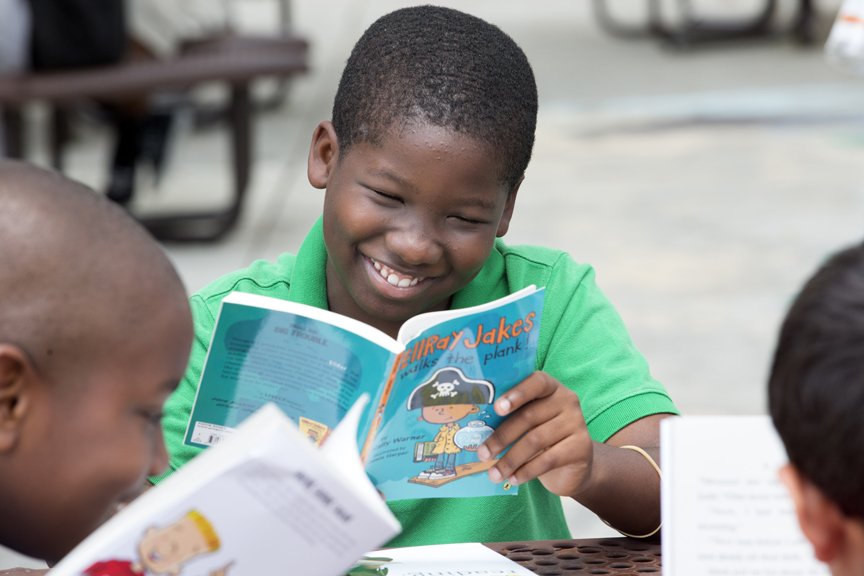- Education
- Parenting
How to raise an avid reader!

In this article, you’ll find answers to questions like:
1. How do nursery rhymes help?
2. How to teach words?
3. When to start engaging?
Did you know there’s a lot you can do — even during pregnancy — to help your child succeed in school?
The first step includes taking care of yourself so you have the best chance of giving birth to a healthy baby. Once your baby is born, you can begin raising a reader by cuddling, singing, talking and listening.
1. HOW DO NURSERY RHYMES HELP?
Repeating beloved nursery rhymes helps children become better readers, even if they don't read yet.
“Research has shown that children who are familiar with eight to 10 nursery rhymes by age 4 are better readers by age 8 than peers who weren’t exposed to nursery rhymes,” says Kristin Calder, chief executive officer of the Literacy Coalition of Palm Beach County. “A child needs spoken words in their vocabulary bank before they can learn to read those words, and for young children, hearing and repeating those words when they rhyme is a fun way to build a vocabulary.”
Along with rhymes, singing, talking and looking at picture books also strengthen reading skills, she says.2. HOW TO TEACH WORDS?
“I suggest parents make daily life a game of words,” Calder says. “So when you’re in the car, have your child look out the window for shapes and colors, or point out the colors of fruits and vegetables during a grocery trip.”
If you take a walk to the park and point out plants and animals along the way, when the child encounters those experiences later in a book, they can identify those experiences as they relate to real life, says Jeanne Siccone, director of Children’s Literacy at the coalition.
3. WHEN TO START ENGAGING?
“Parents can start reading and talking to their child in the womb,” Calder says. “And then continue speaking to the child as soon as he’s born.”
This is how the brain forms speech. For example, your toddler may not be able to say the words “nose” or “shoes,” but if you ask her to touch her nose or to get her shoes, she probably can. “A person, young or old, must be exposed to a language for five years before they are fluent,” Calder says.
By age 4, the conversation can turn into a two-way street. At this stage, it’s beneficial to ask open-ended questions and hear what your child has to say.
“This develops their critical thinking skills,” Siccone says. After you read them a book, ask them what they liked about it, she suggests. These conversations teach them critical thinking skills that can be applied to math and other areas of learning.
SOURCES:
• Kristin Calder, chief executive officer, Literacy Coalition of Palm Beach County
• Jeanne Siccone, director of Children’s Literacy, Literacy Coalition of Palm Beach County
You May Also Like
-
- Behavior
- Health
- Parenting
How should I play with my baby?
Even if you feel silly, experts encourage you to play with your baby. This helps stimulate your baby's brain while strengthening your bond. Read on for fun ways recommended by expe …
Read More -
- Behavior
- Parenting
- Safety
How to quell your toddler's tantrums to teach self-control
"All children misbehave. It is our job to socialize them, to teach them right from wrong," a local psychologist says. Read on for expert tips and advice on how to tame your child's …
Read More -
- Education
- Health
- Parenting
Jump-start your baby's vocabulary through reading
Did you know children memorize words by their sounds even before they start reading? See more reasons why it's so important to read to your children and teach them words everywhere …
Read More
Related resources
-
- Education
Literacy Coalition of Palm Beach County
Countywide programs to promote literacy for children and adults
561-279-9103 Website -
- Behavior
- Education
- Health
211 Palm Beach Treasure Coast
Help Me Grow – information, guidance and developmental assessment of children up to age 8
2-1-1 Website Email -
- Education
- Parenting
School District of Palm Beach County
Early Childhood Education — information on Voluntary Pre-Kindergarten, Head Start and Early Head Start, which are designed to promote school readiness
561-969-5884 Website -
- Education
- Other
- Parenting
Early Learning Coalition of Palm Beach County
Local child-care information, resource and referral, including help paying for care for eligible families
561-514-3300 Website -
- Education
- Things to do
Palm Beach County Library System
Children's Clubhouse — activities, story times, books, events and more.
561-233-2600 Website
